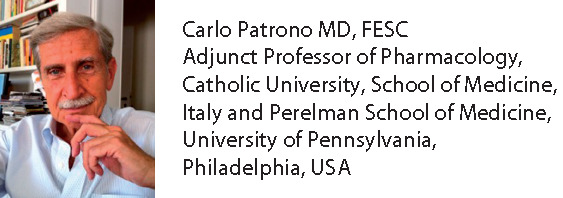The results of the "Effect of Hydroxychloroquine in Hospitalized Patients with COVID-19” have been pubblished in the New England Journal of Medicine. https://www.nejm.org/doi/10.1056/NEJMoa2022926.
Key Points
The Randomised Evaluation of COVID-19 therapy (RECOVERY) trial is an investigator-initiated, controlled, open-label, platform trial comparing a range of possible treatments with usual care in patients hospitalized with COVID-19. In this comparison, 1561 patients hospitalized with clinically suspected or laboratory confirmed (90%) SARS-CoV-2 infection and no substantial contraindication to study treatment (in particular, known prolonged QT interval on electrocardiography) were randomly allocated to receive hydroxychloroquine (HCQ) and 3155 to receive usual care.
In the HCQ group, patients received a loading dose of 800 mg at baseline and at 6 h, followed by 400 mg at 12 h and 400 mg every 12 h for the next 9 days, or until discharge, whichever occurred earlier. This dosing regimen was designed to result in the rapid attainment and maintenance of plasma levels that were as high as safely possible. The frequency of use of azithromycin or other macrolide drug during the follow-up period was similar in the HCQ and the usual-care groups (∼20%), as was the use of dexamethasone (9%) and remdesivir (<0.1%). The primary outcome was 28-day all-cause mortality.
The HCQ arm of the RECOVERY trial was terminated early because of the lack of efficacy. Within 28 days, death occurred in 27% of patients in the HCQ group as compared to 25% in the usual-care group [rate ratio (RR), 1.09; 95% confidence interval (CI), 0.97–1.23; P = 0.15). Patients in the HCQ group had a longer hospitalization than those in the usual-care group (median, 16 vs. 13 days) and a lower probability of being discharged alive within 28 days (60% vs. 63%; RR, 0.90; 95% CI, 0.83–0.98). Patients who were not receiving mechanical ventilation at baseline had a higher likelihood of progressing to invasive mechanical ventilation or dying if treated with HCQ vs. usual care (31% vs. 27%; risk ratio, 1.14; 95% CI, 1.03–1.27). A slightly higher number of patients died of cardiac causes in the HCQ group, although the incidence of new cardiac arrhythmias was similar to the usual-care group.
Comment
Chloroquine (CQ) and HCQ, 4-aminoquinoline drugs used to treat malaria and rheumatologic conditions, have several pharmacological effects that might potentially prevent SARS-CoV-2 infection and interfere with its progression, including antiviral and anti-inflammatory effects with poorly characterized mechanism(s).1 However, these promising in vitro and experimental data did not translate into a beneficial clinical response in patients with COVID-19. Early on, a number of small, uncontrolled studies and anecdotal reports showed promising results with the administration of CQ and HCQ alone or in combination with azithromycin.2 Then, a randomized, controlled trial of HCQ with or without azithromycin in ∼500 patients with mild-to-moderate COVID-19 failed to demonstrate any improvement in clinical status at 15 days as compared with standard care.3 Despite this apparent lack of evidence, HCQ has been used extensively during the past months (up to 60% of hospitalized patients in New York in April received HCQ) as a desperate attempt for the prophylaxis and treatment of COVID-19.
RECOVERY is a platform trial, in which 11 197 patients with COVID-19 in 176 hospitals across the UK were randomized to standard care or to one of the four experimental treatments: HCQ, dexamethasone, lopinavir-ritonavir, or azithromycin. Although the platform design of the trial has some limitations,4 the death rate in the usual-care group was consistent with the hospitalized case fatality rate in the UK. The HCQ arm of the RECOVERY trial reported a conclusive policy-changing result: in patients hospitalized with COVID-19, HCQ was not associated with lower 28-day mortality, but with a longer hospital stay and higher probability of progressing to invasive mechanical ventilation or death.5 It should be emphasized that the lower limit of the 95% CI allows ruling out any meaningful mortality benefit, while the upper limit is compatible with some increased risk.5 These findings have just received an important confirmation by the interim results of the SOLIDARITY trial, sponsored by the World Health Organization (WHO).6 In March 2020, WHO began a large, open-label randomized trial among hospitalized patients of the effects of four repurposed drugs, including HCQ, on in-hospital mortality. The joint mortality RR (combining log-rank analyses from RECOVERY and SOLIDARITY) was 1.11 (95% CI, 0.99–1.24), with no apparent benefit whether patients were ventilated or not.6 This CI allows excluding any material benefit from HCQ in hospitalized COVID-19 patients. It is compatible with some hazard but does not demonstrate hazard. Since there were too few cardiac deaths, it was not possible to deduce reliable information on the potential cardiotoxicity of HCQ. However, in neither trial was there an excess of mortality during the first few days, when drug levels were the highest.6
Since the preliminary results of the RECOVERY trial were made public on 5 June, the US Food and Drug Administration has revoked the Emergency Use Authorization for CQ and HCQ, and WHO and the US National Institutes of Health (NIH) have ceased trials of its use in hospitalized patients on the grounds of a lack of efficacy. Finally, the NIH COVID-19 Treatment Guidelines7 recommend against the use of CQ or HCQ for the treatment of COVID-19 in both hospitalized and non-hospitalized patients.
In retrospect, rarely has any other treatment received so much media coverage in the face of so little scientific evidence as in the case of HCQ. This taught us an important lesson about the danger of replacing scientific evidence with the hope and the hype at the time of a pandemic.
Supplementary material
Supplementary material is available at European Heart Journal online.
Conflict of interest: G.L. reports grants from the Italian National Health Service and from the Italian Minister of Education University and Research, outside the submitted work. C.P. reports personal fees from Acticor Biotech, Amgen, Bayer, GlaxoSmithKline, Tremeau, and Zambon, grants from AIFA (Italian Drug Agency), and grants from AIFA (Italian Drug Agency), Bayer, Cancer Research UK, and European Commission; he chairs the Scientific Advisory Board of the International Aspirin Foundation, outside the submitted work.


Supplementary Material
The results of the "Effect of Hydroxychloroquine in Hospitalized Patients with COVID-19” have been pubblished in the New England Journal of Medicine. https://www.nejm.org/doi/10.1056/NEJMoa2022926.
References
- 1. Sanders JM, Monogue ML, Jodlowski TZ, Cutrell JB. Pharmacologic treatments for coronavirus disease 2019 (COVID-19): a review. JAMA 2020;323:1824–1836. [DOI] [PubMed] [Google Scholar]
- 2. Fantini J, Chahinian H, Yahi N. Synergistic antiviral effect of hydroxychloroquine and azithromycin in combination against SARS-CoV-2: what molecular dynamics studies of virus-host interactions reveal. Int J Antimicrob Agents 2020;56:106020–106020. [DOI] [PubMed] [Google Scholar]
- 3. Cavalcanti AB, Zampieri FG, Rosa RG, Azevedo LCP, Veiga VC, Avezum A, Damiani LP, Marcadenti A, Kawano-Dourado L, Lisboa T, Junqueira DLM, de Barros E, Silva PGM, Tramujas L, Abreu-Silva EO, Laranjeira LN, Soares AT, Echenique LS, Pereira AJ, Freitas FGR, Gebara OCE, Dantas VCS, Furtado RHM, Milan EP, Golin NA, Cardoso FF, Maia IS, Hoffmann Filho CR, Kormann APM, Amazonas RB, Bocchi de Oliveira MF, Serpa-Neto A, Falavigna M, Lopes RD, Machado FR, Berwanger O; Coalition COVID-19 Brazil I Investigators. Hydroxychloroquine with or without azithromycin in mild-to-moderate COVID-19. N Engl J Med 2020. doi:10.1056/NEJMoa2019014. [DOI] [PMC free article] [PubMed] [Google Scholar]
- 4. Normand SLT. The RECOVERY platform. N Engl J Med. doi:10.1056/NEJMe2025674. [DOI] [PMC free article] [PubMed] [Google Scholar]
- 5. Horby P, Mafham M, Linsell L, Bell JL, Staplin N, Emberson JR, Wiselka M, Ustianowski A, Elmahi E, Prudon B, Whitehouse T, Felton T, Williams J, Faccenda J, Underwood J, Baillie JK, Chappell LC, Faust SN, Jaki T, Jeffery K, Lim WS, Montgomery A, Rowan K, Tarning J, Watson JA, White NJ, Juszczak E, Haynes R, Landray MJ; RECOVERY Collaborative Group. Effect of hydroxychloroquine in hospitalized patients with Covid-19. N Engl J Med 2020. doi:10.1056/NEJMoa2022926. [DOI] [PMC free article] [PubMed] [Google Scholar]
- 6.The results of the SOLIDARITY trial have been uploaded as preprint at medRxiv available at this link: medRxiv preprint. 10.1101/2020.10.15.20209817. [DOI]
- 7. COVID-19 Treatment Guidelines Panel. Coronavirus Disease 2019 (COVID-19) Treatment Guidelines. National Institutes of Health. https://www.covid19treatmentguidelines.nih.gov/. Date accessed 25 October 2020.
Associated Data
This section collects any data citations, data availability statements, or supplementary materials included in this article.


